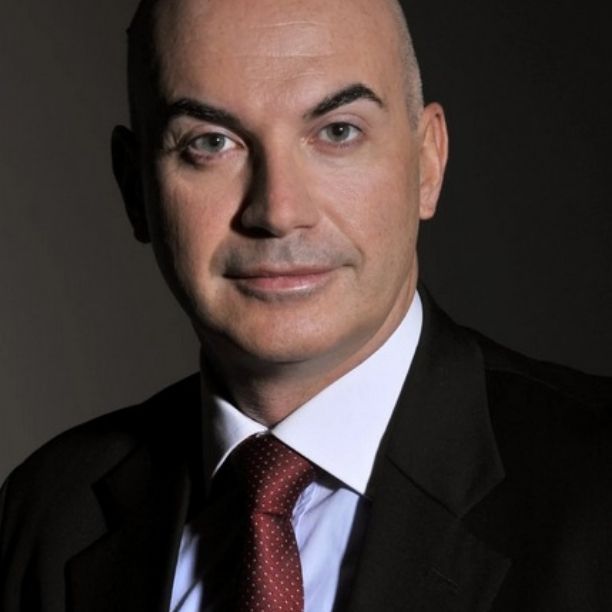Brad Pitt Suffers from a Condition Called Prosopagnosia
Prosopagnosia, commonly known as face blindness, is a neurological disorder characterized by an individual's inability to recognize and remember faces. While most people are able to easily identify and recall faces, even those of celebrities, some individuals, including renowned actor Brad Pitt, struggle with this condition

Understanding Prosopagnosia
Prosopagnosia (from Greek prósōpon, meaning "face", and agnōsía, meaning "non-knowledge") is a complex disorder that affects an individual's ability to recognize and remember faces, regardless of the person's familiarity or significance. People with prosopagnosia often rely on other identifying cues, such as hairstyles, voices, or contextual information, to compensate for their inability to recognize faces. What Are the Symptoms of Prosopagnosia?
- Face Recognition Impairment. The most prominent feature of prosopagnosia is the inability to recognize familiar faces, including those of family members, friends, and even one's own reflection. Individuals with prosopagnosia may struggle to differentiate between faces, and rely on other cues such as hairstyles, voices, or clothing to identify people
- Difficulties with Face Memory. People with prosopagnosia often have difficulty forming and retaining visual memories of faces. They may not be able to recognize individuals they have encountered previously, even after multiple interactions. This impairment can extend to remembering emotional expressions or facial features that aid in social communication.
- Challenges in Social Situations. Due to their difficulty in recognizing faces, individuals with prosopagnosia may experience anxiety and avoidance of social situations. Recognizing familiar individuals becomes a constant challenge, leading to miscommunication and feelings of isolation.
Brad Pitt's Experience
While not much has been officially confirmed about Brad Pitt's personal experience with prosopagnosia, there have been reports suggesting that he struggles with face recognition. In several interviews, Pitt has mentioned his difficulty in remembering faces, both of acquaintances and even co-stars he has worked with extensively in the film industry. He expressed frustration at times when he fails to recognize people he should know well. Prosopagnosia can have significant implications for an individual's personal and professional life, and Brad Pitt is no exception. In personal relationships, he may face challenges recognizing people, leading to potential misunderstandings or awkward encounters. In his career as an actor, where familiarity and face recognition play a crucial role, Pitt's prosopagnosia may pose unique hurdles. However, his acting skills and ability to adapt seem to have helped him overcome these challenges to a great extent. Individuals with prosopagnosia often develop coping mechanisms to navigate social situations. Brad Pitt may have developed strategies to recognize people based on non-facial cues such as body language, voice, or distinctive features. Also, having a supportive team, including family, friends, and co-workers who understand his condition, could aid in managing the challenges associated with prosopagnosia. Brad Pitt's openness about his prosopagnosia can help raise awareness and foster understanding about this often underrecognized condition. By sharing his experiences, he can inspire others who may be struggling with face recognition difficulties to seek support and know that they are not alone.
Causes of Prosopagnosia
Congenital prosopagnosia is present from birth and is believed to have a genetic basis. Research suggests that certain genes related to face processing and neural connectivity may contribute to the development of this condition. However, the specific genetic markers remain unclear and further studies are needed to understand the exact mechanisms involved. Acquired prosopagnosia can occur as a result of brain injury or neurological conditions such as stroke, traumatic brain injury, or neurodegenerative diseases like Alzheimer's. Damage to specific brain regions involved in face processing, such as the fusiform face area (FFA) or the superior temporal sulcus (STS), can disrupt the normal functioning of the face recognition system. Developmental prosopagnosia refers to cases where individuals have experienced face recognition difficulties from early childhood without any apparent brain damage. The exact causes of developmental prosopagnosia are not fully understood, but research suggests a combination of genetic factors, abnormal brain development, and impaired visual processing.
Conclusion
- Prosopagnosia is a complex condition characterized by an inability to recognize and remember faces.
- Whether congenital, acquired, or developmental, the impairment of face recognition and face memory can significantly impact social interactions and daily life.
- Further research is needed to better understand the underlying causes of prosopagnosia, which will aid in the development of effective interventions and support for affected individuals.
- Brad Pitt's revelation about his potential struggles with prosopagnosia has brought this often-misunderstood condition into the spotlight.
By sharing his personal experience, Pitt has raised awareness about prosopagnosia and highlighted the importance of empathy and understanding for those living with this condition. As research continues, it is hoped that more effective treatments and support systems will be developed to enhance the lives of individuals with prosopagnosia.
Psicologo del Lavoro e delle organizzazioni
Specialista in Psicoterapia
Esperto di VRT (Virtual Reality Therapy)
Master in Cognitive Behavioural Hypnotherapy
Ipnosi Clinica Evidence Based
Membro dell'American Psychological Association
Membro della Division 30 Society of Psychological Hypnosis
Past Vice President Ordine degli Psicologi del Piemonte
Bibliography
- Giovagnoli AR, Aresi A, Reati F, Riva A, Gobbo C, Bizzi A. The neuropsychological and neuroradiological correlates of slowly progressive visual agnosia. Neurol Sci. 2009 Apr;30(2):123-31. doi: 10.1007/s10072-009-0019-9. Epub 2009 Jan 30. PMID: 19184324.
- Manippa V, Palmisano A, Ventura M, Rivolta D. The Neural Correlates of Developmental Prosopagnosia: Twenty-Five Years on. Brain Sci. 2023 Sep 30;13(10):1399. doi: 10.3390/brainsci13101399. PMID: 37891769; PMCID: PMC10605188.
- Marciani MG, Carlesimo GA, Maschio MC, Sabbadini M, Stefani N, Caltagirone C. Comparison of neuropsychological, MRI and computerized EEG findings in a case of prosopoagnosia. Int J Neurosci. 1991 Sep;60(1-2):27-32. doi: 10.3109/00207459109082035. PMID: 1774147.
Desideri maggiori informazioni?
Inviando una richiesta si dichiara di aver letto il disclaimer sulla privacy e si autorizza lo studio RPStrategy© ad elaborare una risposta.

